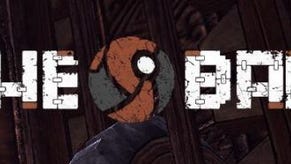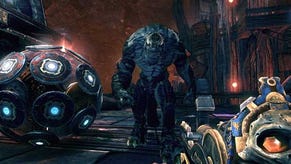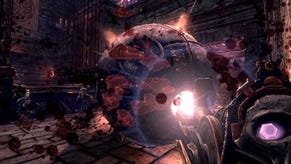No Programmer No Problem:Artist-Only Games
The current trend towards big middleware developers giving their engines away for free is only going to yield great things. With the intimidating financial up-frontery removed, people with wonderful ideas, a ton of untapped talent and no money will be able to create and publish games made in the likes of Unreal 3 and Unity; no doubt we'll be posting about many such projects here over the months and years to come.
Here's an interesting curveball, though: what if someone who isn't a game developer is let loose on tools this powerful? Sjoerd "Hourences" De Jong, better known as the guy behind the splendid Unreal 3 mod (and soon to become commercial and standalone) The Ball, has been leading a Unreal Development Kit course at Stockholm's fascinating FutureGames Academy. The course lasted six weeks, all-in: three of tuition, and three spent creating games. The clincher? None of the students had any game design experience. Moreover, no programmers were allowed - only designers and artists. They couldn't possibly make a game on their own, could they? They bloody well could. Several, in fact.
Here's maze/puzzle game Spybot:
Made in three weeks by six students with no programming knowledge or prior game design experience!
Here's giddying first-person-explorer Phobia:
Made in three weeks by six students with no programming knowledge or prior game design experience!
Here's psychedic Mariolike Iwon:
Made in three weeks by six students with no programming knowledge or prior game design experience!
Here's bewildering shmup Intergalactic Dentist of Love:
Made in three weeks by... well, you get it. Sure, they're rudimentary, but that doesn't mean they're not hugely impressive achievements. They're a remarkable precedent, too: now that the tools are freely available, anyone can make a game, given a little time and a bit of will. We've seen similar, to some extent, with goodly James Carey's adventures with our own Rock, Paper, Shotgunity project, only without a tutor cracking a whip. While such early efforts might be rickety in their hugely charming way, this kind of thing is an incredibly important thing to have happened to game development.
(Thanks to Schizoslayer for the tip.)







